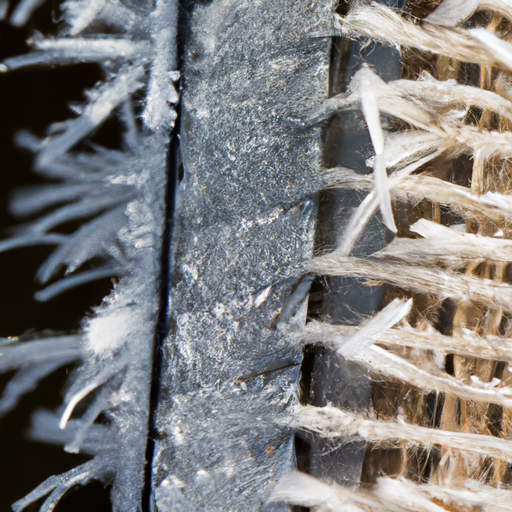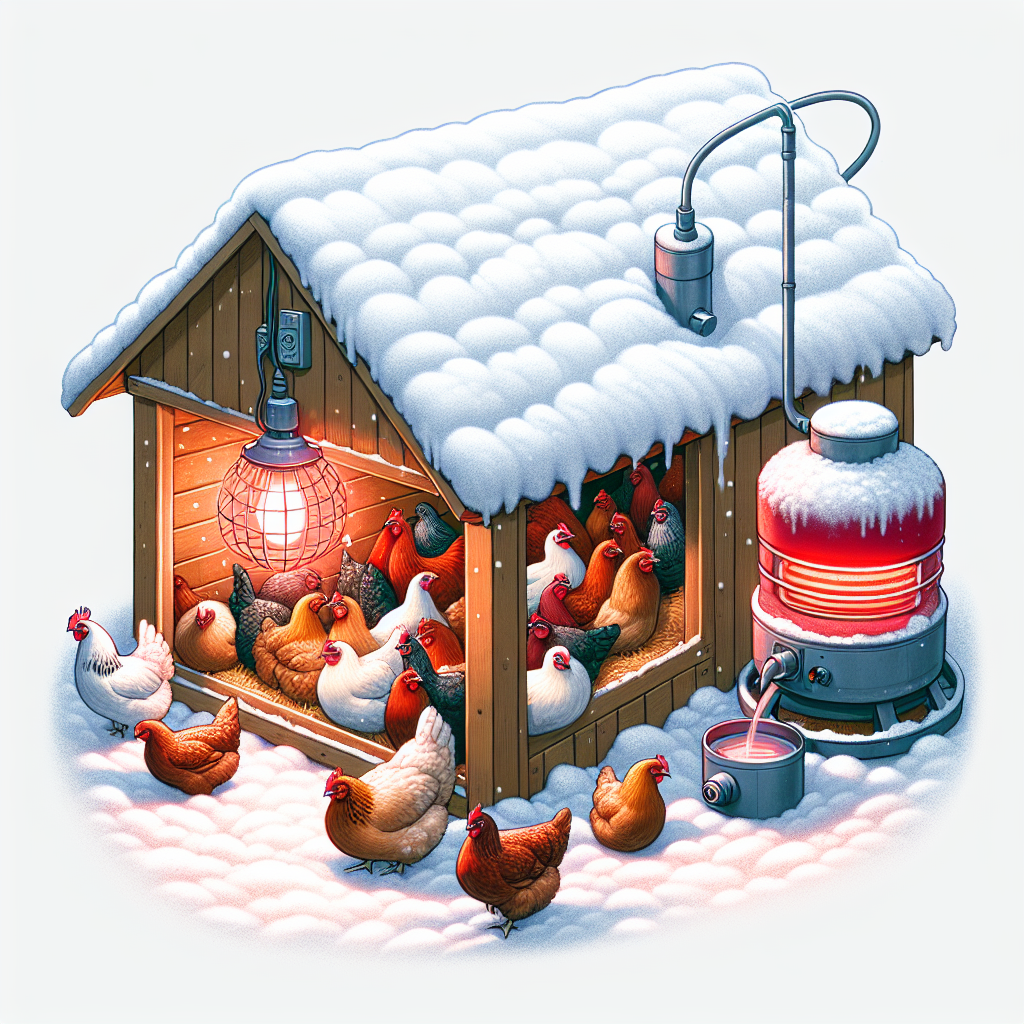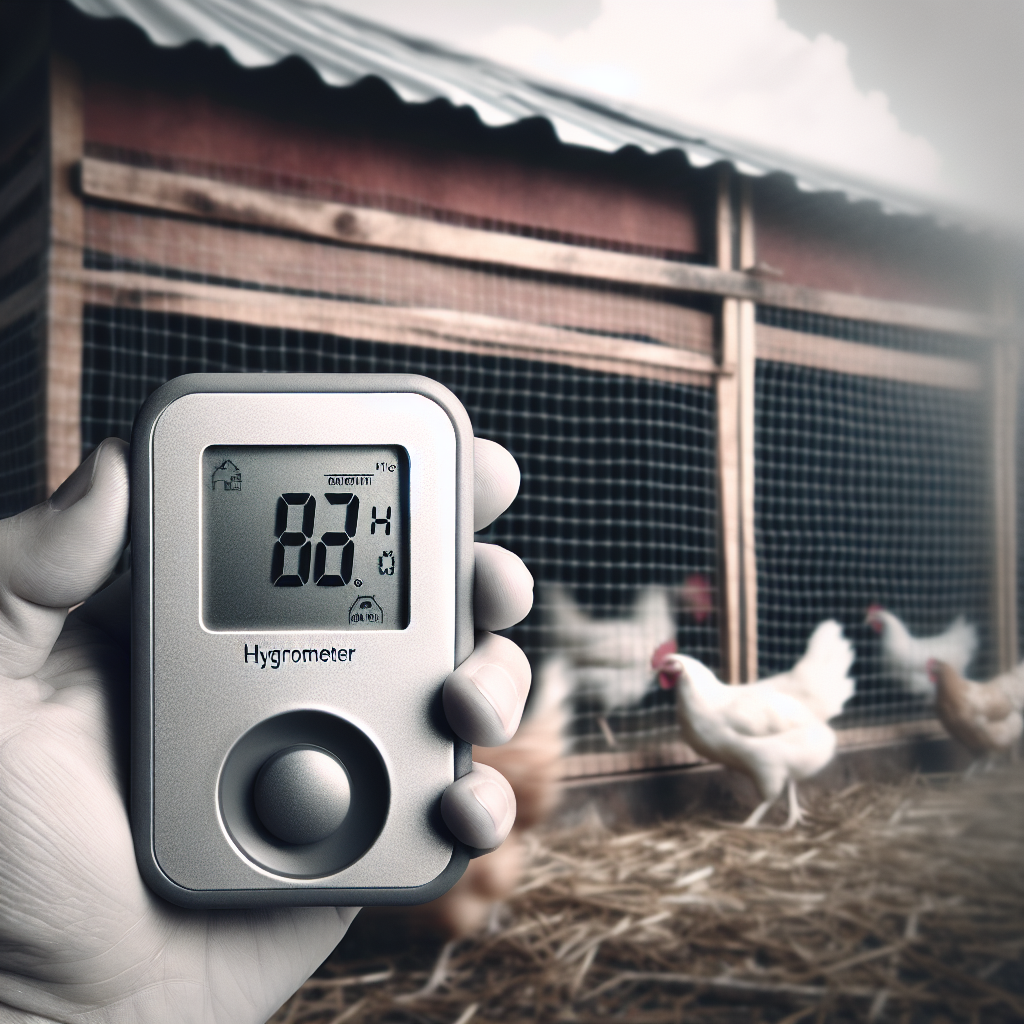Winter can be a challenging time for everyone, including our feathered friends. If you’re a chicken owner, you may be wondering if there are any specific ailments or health concerns you should be aware of during the colder months. Well, worry not! In this article, we will explore the potential winter challenges that chickens might face and offer some friendly advice on how to keep your flock happy and healthy throughout the chilly season. So, grab yourself a warm cup of tea and let’s learn how to care for our chickens during the winter!
Common Winter Ailments and Health Concerns for Chickens
Frostbite
Frostbite is a common concern for chickens during the winter months. When temperatures drop below freezing, the comb, wattles, and exposed areas of a chicken’s body are at risk of frostbite. Frostbite occurs when the tissues freeze, leading to damage and potential loss of the affected areas. To prevent frostbite, it’s essential to provide adequate shelter and insulation for your chickens. Ensure that the coop is well-insulated, draft-free, and free from any gaps or cracks that could let cold air in. Additionally, consider using safe heating methods, such as radiant heaters or heat lamps, to provide supplemental warmth to the coop.
Respiratory Infections
Respiratory infections are another concern for chickens during the winter months. Cold and damp conditions can weaken their immune system, making them more susceptible to respiratory illnesses such as infectious bronchitis or mycoplasma. The symptoms of respiratory infections in chickens include coughing, sneezing, nasal discharge, and difficulty breathing. To minimize the risk of respiratory infections, ensure proper ventilation in the coop. Good airflow will help remove moisture and ammonia buildup, reducing the likelihood of respiratory issues. Avoid overcrowding the coop and maintain cleanliness by regularly cleaning out bedding and soiled areas.
Dehydration
Dehydration can be a significant concern for chickens during winter. Although chickens may not feel as thirsty in colder temperatures, they still require an adequate supply of fresh water to stay hydrated. Ensure that your chickens always have access to unfrozen water by regularly checking and refreshing their water sources. Consider using heated waterers or using insulated buckets to prevent freezing. Encourage water intake by offering warm water or adding electrolytes to their drinking water. Monitoring their water consumption and checking for signs of dehydration, such as reduced egg production or lethargy, is crucial during the winter months.
Molting
Molting is a natural process where chickens shed their old feathers and grow new ones. It typically occurs during the late summer or early fall, but some chickens may experience late molts during the winter. Molting can put added stress on chickens as they redirect their energy towards regrowing feathers rather than maintaining their overall health. To support your chickens during molting, provide a well-balanced diet rich in protein to support feather regrowth. Feeding them a high-quality layer feed supplemented with protein-rich treats such as mealworms or black soldier fly larvae can help them through this process.
Lack of Sunlight
Shorter days and limited sun exposure during winter can lead to a lack of sunlight for chickens. Sunlight is essential for the synthesis of Vitamin D, which plays a crucial role in calcium absorption and overall health. To compensate for the reduced sunlight, consider providing artificial lighting in the coop to supplement their light exposure. Ensure that the lighting system mimics the natural day-night cycle, providing approximately 14-16 hours of light per day. Remember to place the lighting source at a safe distance to minimize the risk of fire hazards and monitor your chickens for signs of stress or aggression resulting from prolonged light exposure.
Vitamin Deficiencies
Winter can increase the risk of vitamin deficiencies in chickens due to reduced foraging opportunities and limited access to fresh greens and insects. Vitamin deficiencies can weaken their immune system and make them more susceptible to various ailments. To prevent vitamin deficiencies, consider adding vitamin and mineral supplements to their diet. Feed them a balanced and nutritionally complete layer feed that contains adequate levels of vitamins and minerals. Additionally, offer fresh fruits and vegetables regularly as treats or provide them access to a chicken-safe winter garden, where they can forage for greens and bugs.
Inadequate Ventilation
Inadequate ventilation can lead to a host of health issues for chickens during winter. Without proper airflow, moisture and ammonia can accumulate in the coop, leading to respiratory problems, frostbite, and mold growth. To maintain proper ventilation, ensure that the coop has enough windows, vents, or openings to allow for air exchange. Use hardware cloth or fine mesh to cover any openings to prevent pests and predators from entering. Regularly check the coop for any signs of condensation or odor, and adjust ventilation accordingly. Good airflow will not only improve air quality but also help regulate temperature and humidity levels inside the coop.
Footpad and Leg Problems
Chickens are susceptible to footpad and leg problems, which can be exacerbated during winter. Cold and damp conditions, combined with unsanitary bedding, can contribute to issues such as bumblefoot or scaly leg mites. Bumblefoot is an infection caused by a bacterial entry point in the chicken’s footpad, while scaly leg mites burrow under the scales of the legs, causing inflammation and discomfort. To prevent footpad and leg problems, ensure that the coop floor is clean, dry, and bedded with materials such as straw or wood shavings. Regularly inspect your birds’ feet and legs, and promptly address any signs of injury, swelling, or infestation.
Pest Infestations
Pest infestations can be a nuisance and a health concern for chickens, especially during winter when the cold weather drives pests indoors. Mites, lice, and rodents can wreak havoc on your flock, causing stress, irritation, and potential disease transmission. To prevent pest infestations, regularly clean and disinfect the coop, paying close attention to cracks and crevices where pests can hide. Consider using natural pest control methods such as diatomaceous earth or herbs with pest-repellent properties. Additionally, keep food sources properly sealed in rodent-proof containers to deter rodents from entering the coop.
Stress and Aggression
Winter conditions can contribute to increased stress and aggression among chickens. Reduced daylight, winter confinement, and changes in flock dynamics can all contribute to higher levels of stress and aggression. To minimize these issues, ensure that your chickens have adequate space in the coop and run to move around and establish hierarchies without overcrowding. Provide plenty of mental stimulation, such as hanging treats or offering enriching toys, to keep them occupied. Regularly observe your flock for any signs of bullying or aggressive behavior, and be prepared to separate individuals if necessary.
Preventive Measures to Maintain Chicken Health during Winter
Providing Adequate Shelter and Insulation
To maintain chicken health during winter, it’s crucial to provide adequate shelter and insulation. Ensure that the coop is secure, free from drafts, and well-insulated to protect your chickens from cold temperatures. Repair any cracks or gaps in the coop walls and roof to prevent drafts, and consider using insulation materials such as straw bales or foam boards. Provide proper bedding materials, such as straw or wood shavings, to keep your chickens warm and comfortable. Additionally, make sure the coop is predator-proof to protect your flock from potential threats.
Ensuring Proper Ventilation
Proper ventilation is vital for maintaining good air quality and preventing respiratory issues in chickens during winter. While warmth is essential, the coop should also have adequate airflow. Ensure that the coop has windows, vents, or openings that can be adjusted to regulate temperature and humidity levels inside. Install hardware cloth or fine mesh to keep pests out while allowing fresh air to circulate. Regularly monitor the coop for signs of condensation or ammonia buildup, as these indicate poor ventilation. Adjust the openings accordingly to maintain a healthy and comfortable environment for your chickens.
Supplying Fresh Water and Preventing Freezing
Supplying fresh, unfrozen water is crucial for chicken health during winter. Check water sources frequently and ensure that they don’t freeze. Consider using heated waterers or insulated buckets to prevent freezing. Insulate water pipes, if applicable, and regularly thaw any ice that may form. Offering warm water or adding electrolytes to their drinking water can encourage water intake during colder weather. Remember to clean and refill waterers regularly to ensure cleanliness and prevent bacterial growth. Monitor your chickens for signs of dehydration, such as reduced egg production or lethargy, and address any water-related issues promptly.
Maintaining a Balanced Diet
Maintaining a balanced diet is essential for keeping chickens healthy throughout winter. Ensure that your chickens have access to a high-quality layer feed that meets their nutritional needs. Layer feeds are specifically formulated to provide the right balance of protein, vitamins, and minerals that chickens need for egg production and overall health. Supplement their diet with protein-rich treats such as mealworms, black soldier fly larvae, or high-quality scratch grains. Consider offering fruits and vegetables regularly to provide additional nutrients. Monitor their body condition and adjust feed quantities accordingly to prevent obesity or malnutrition.
Managing Light Exposure
Managing light exposure is crucial for maintaining egg production and overall health in chickens during winter. Chickens require a certain amount of daylight to maintain their natural reproductive cycle. If daylight hours are limited during winter, consider providing artificial lighting in the coop. Use a timer to mimic the natural day-night cycle, providing approximately 14-16 hours of light per day. Place the lighting source at a safe distance from combustible materials and ensure that it is secure to prevent accidents. Monitor your hens for any signs of stress or aggression resulting from prolonged light exposure and adjust lighting levels if needed.
Regular Health Check-ups
Regular health check-ups are essential for identifying and addressing any potential health issues in your chickens during winter. Monitor your flock closely and be attentive to any changes in behavior, body condition, or egg production. Perform regular physical exams, checking for signs of illness, injury, or mite infestation. Pay attention to their droppings, ensuring they are of normal consistency and color. Consult with a veterinarian experienced in poultry to establish a vaccination and deworming program tailored to your flock’s specific needs. Promptly address any health concerns or seek professional advice if needed.
Implementing Biosecurity Measures
Implementing biosecurity measures is vital for preventing the spread of diseases and reducing the risk of illness in your flock. Limit visitors to your coop, and establish proper hygiene protocols for anyone who comes into contact with your chickens. Use dedicated footwear and clothing when entering the coop to minimize the risk of disease transmission. Quarantine new birds before introducing them to the flock to ensure they are healthy and disease-free. Regularly clean and disinfect the coop, as well as any equipment or tools used. Lastly, control pests and rodents, as they can introduce diseases to your flock.
Ensuring Adequate Exercise and Mental Stimulation
Ensuring adequate exercise and mental stimulation for your chickens is important for their physical and mental well-being during winter. Although they may spend more time indoors, provide them with ample space in the coop and run to move around and engage in natural behaviors. Consider implementing a rotation system to give them access to different areas of the run or provide enrichment activities such as hanging treats or offering puzzle toys. Monitor their behavior and provide additional stimulation if they show signs of boredom or aggression. A healthy and happy flock is less likely to develop health issues during winter.
By following these preventive measures to maintain chicken health during winter, you can minimize the risks of common winter ailments and health concerns. Remember, each chicken is unique, and their specific needs may vary. Regularly assess their well-being, consult with professionals when needed, and provide the care and attention necessary to ensure their health and happiness throughout the colder months. With proper care, your feathered friends can thrive even in the chilliest of winters!




